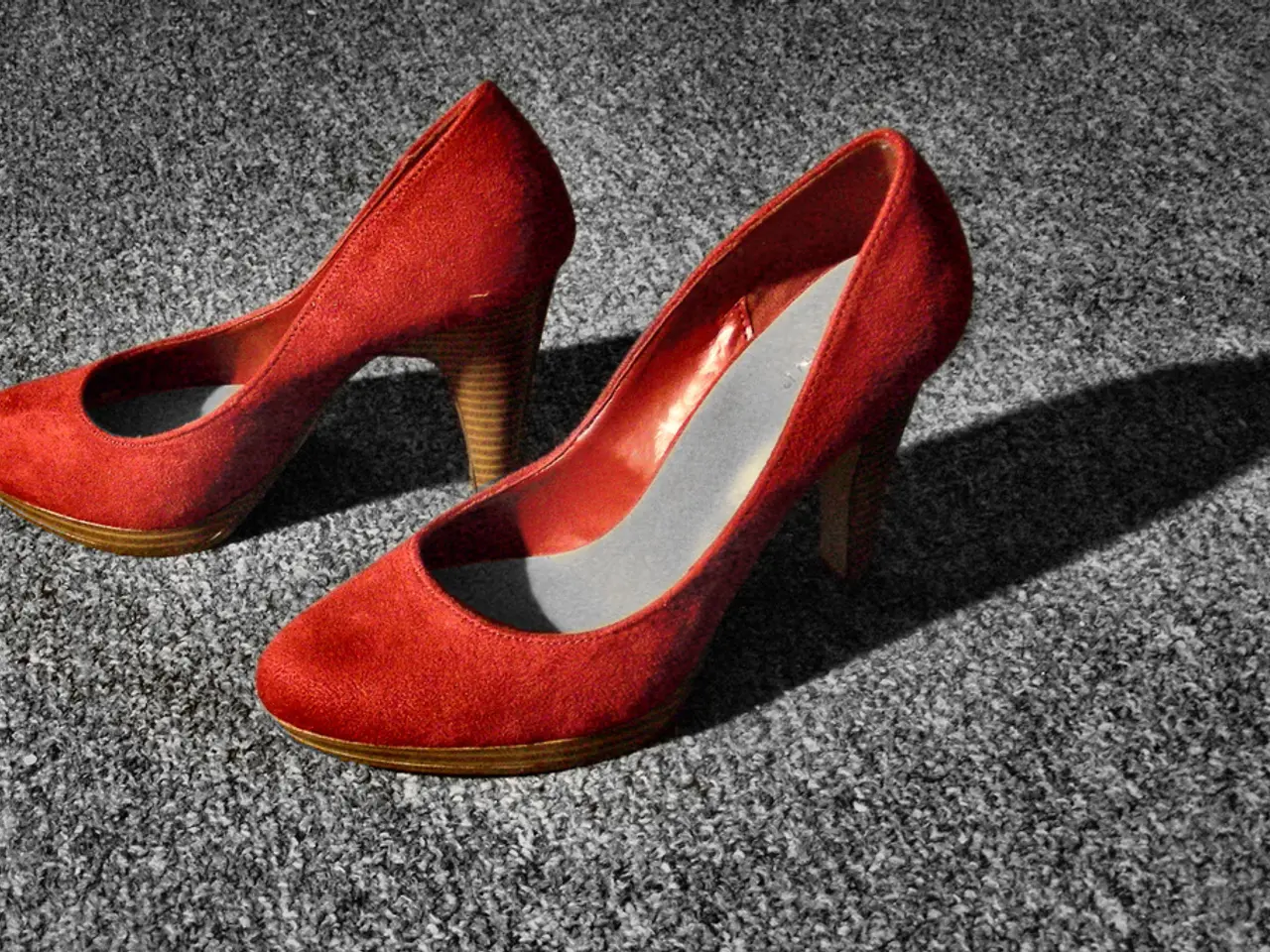Vinegar Foot Soak: Advantages, Disadvantages, and Preparation Instructions
In recent years, the use of vinegar foot soaks has gained popularity as a natural remedy for various foot ailments. While vinegar is not a replacement for conventional treatments, it can provide some benefits when used correctly and cautiously.
### Proven Benefits
Studies have shown that vinegar, with its antifungal properties, can be effective against certain fungal types that cause conditions like athlete's foot (Tinea Pedis). Although direct studies proving vinegar foot soaks cure athlete's foot are lacking, using a vinegar soak (1 part vinegar to 2 parts warm water, soaking feet for 15-20 minutes daily) alongside conventional antifungal treatments may help speed recovery. Vinegar is thought to slow fungal growth and reduce infection severity when used properly.
Vinegar's acidic nature can also help reduce bacteria that cause foot odor. While specific clinical trials are lacking, anecdotal evidence and traditional use suggest that regular vinegar soaks can reduce unpleasant smells by balancing foot pH and controlling bacterial growth.
In addition, vinegar soaks can soften rough skin and calluses by breaking down dead skin layers, improving foot comfort and potentially reducing cracking or discomfort.
### Potential Risks
Despite its benefits, it's important to note that vinegar is acidic and can cause skin irritation, dryness, or mild chemical burns if used undiluted or too frequently. To mitigate this risk, vinegar should always be diluted (e.g., 1:2 vinegar to water ratio) and limited to about 15–20 minutes per soak.
For individuals with diabetes, peripheral arterial disease, or poor circulation, foot soaking can cause skin breakdown and increase infection risk. Such individuals should avoid foot soaks or consult a healthcare provider first.
Soaking feet with open wounds risks introducing or spreading infections through broken skin and should be avoided or done only under medical advice. Furthermore, since fungus thrives in moist environments, excessive soaking or inadequate drying after vinegar soaks might exacerbate fungal infections rather than improve them. Proper drying and combining vinegar soaks with antifungal medications is important.
### Summary
Vinegar foot soaks can be beneficial as an adjunct for mild fungal problems and foot odor when used properly and with caution. However, those with underlying conditions or severe infections should seek medical advice and consider proven antifungal treatments. Avoid prolonged or undiluted soaks to minimize skin damage.
This cautious approach ensures you maximize benefits and minimize risks when using vinegar soaks for foot care. More research is needed to confirm the benefits of vinegar soaks for athlete's foot. It's important to contact a doctor for advice if foot problems do not resolve or worsen. Soaking the feet in a vinegar-water solution may help manage foot odor and infections, but it's important to clean the feet with a regular, soft soap before and after soaking.
Vinegar is generally safe, but should be used with caution, especially for those with underlying health conditions or severe foot problems.
- Vinegar, with its antifungal properties, is effective against certain fungal types that cause conditions like multiple types of athlete's foot (Tinea Pedis).
- Regular vinegar soaks, when combined with conventional antifungal treatments, might speed recovery from athlete's foot by slowing fungal growth and reducing infection severity.
- Vinegar's acidic nature can help reduce bacteria that cause foot odor, although clinical trials are lacking for this claim.
- Vinegar foot soaks can soften rough skin and calluses, improving foot comfort and potentially reducing cracking or discomfort.
- Despite its benefits, undiluted or excessive use of vinegar can cause skin irritation, dryness, or mild chemical burns.
- Individuals with diabetes, peripheral arterial disease, or poor circulation should avoid foot soaking due to the increased risk of skin breakdown and infection.
- Soaking feet with open wounds can introduce or spread infections through broken skin, and should be avoided or done only under medical advice.
- In addition to foot care, maintaining a health-and-wellness routine that includes fitness-and-exercise, skin-care, and a balanced diet can help predict and manage conditions such as bipolar, psoriatic, obesity, diabetes, Alzheimer's, multiple arthritis, COPD, and other related health issues.




